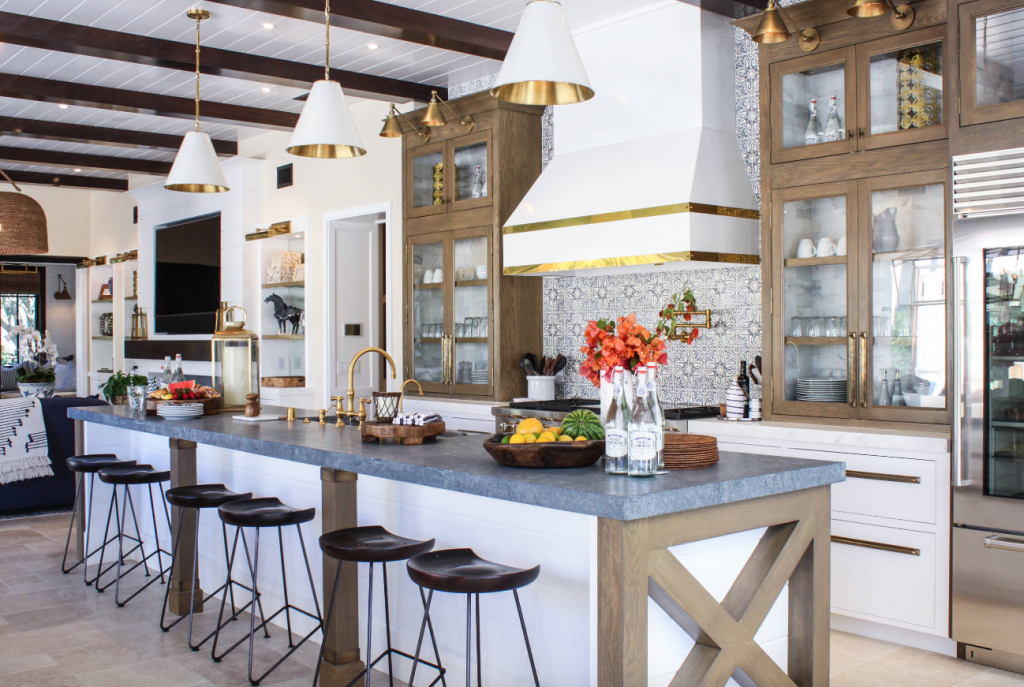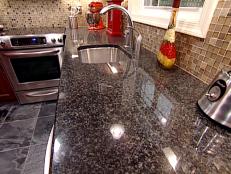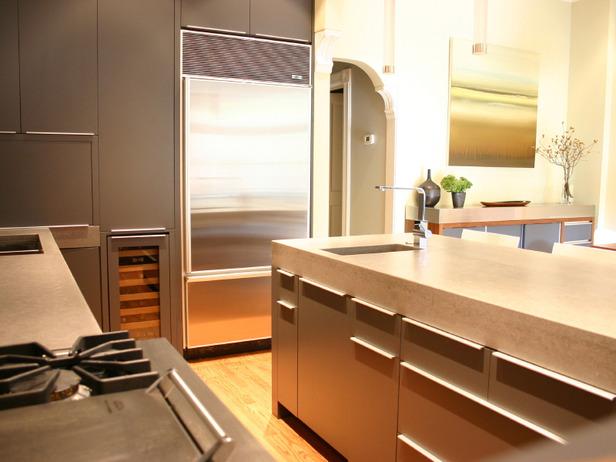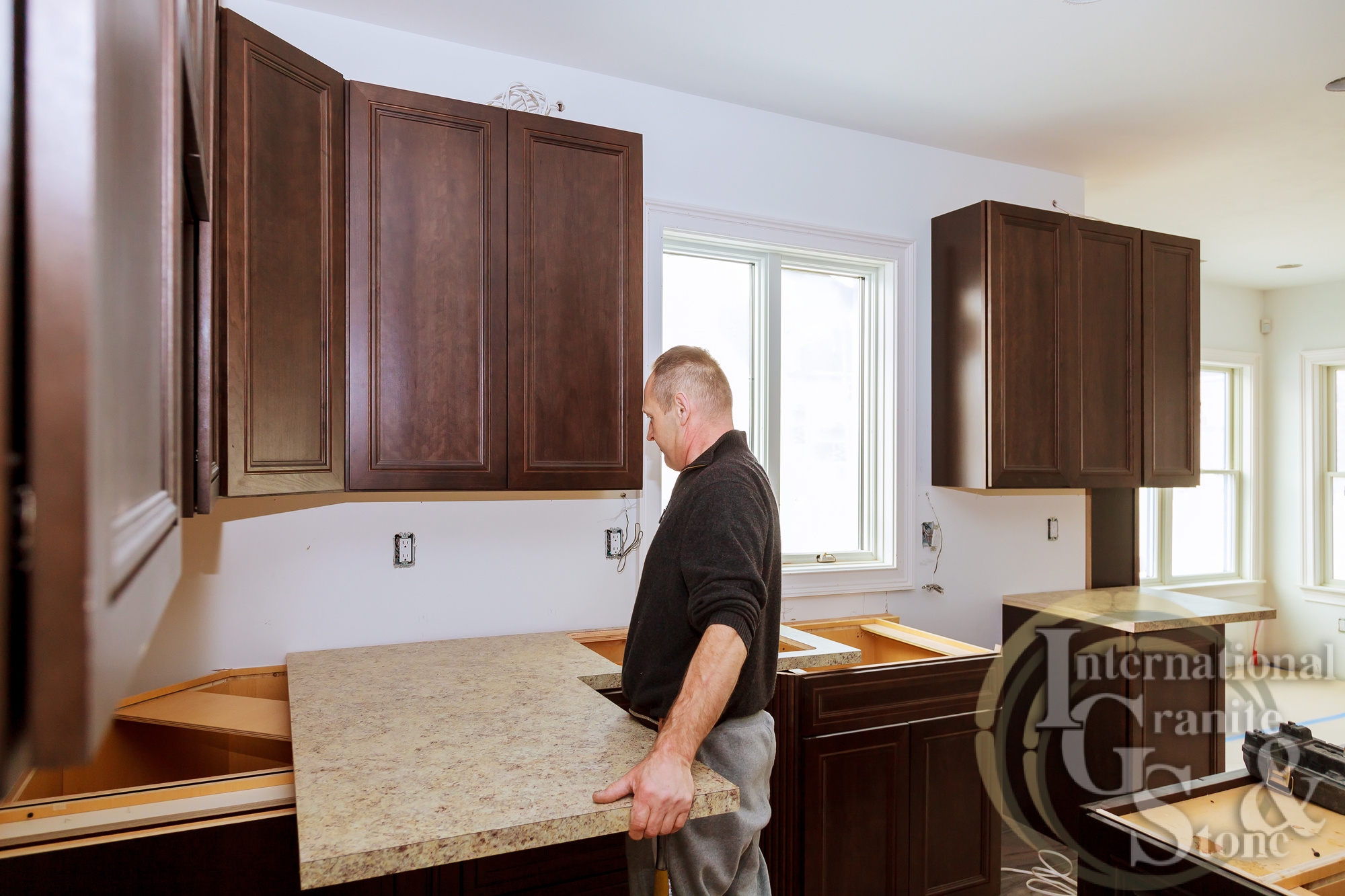Mastering the Art of Installing New Kitchen Countertops
Revamping your kitchen with new countertops can breathe fresh life into the heart of your home, elevating both its aesthetic appeal and functionality. Whether you’re embarking on a full kitchen remodel or simply looking to update the countertops, proper installation is crucial to ensure a seamless and long-lasting result. From selecting the right materials to executing precise measurements and securing proper support, here’s a comprehensive guide to installing new kitchen countertops.

Choosing the Perfect Material
Before diving into the installation process, it’s essential to select the right material for your kitchen countertops. The market offers a plethora of options, ranging from timeless classics like granite and marble to contemporary choices such as quartz and butcher block. Consider factors such as durability, maintenance requirements, aesthetics, and budget when making your selection. Each material has its unique characteristics and benefits, so weigh your priorities carefully to find the perfect fit for your kitchen.
Granite countertops exude luxury and durability, with natural variations in color and pattern adding a touch of sophistication to any kitchen. Quartz countertops, on the other hand, offer unmatched durability and low maintenance, thanks to their engineered composition. For a warm and inviting feel, consider butcher block countertops, which lend a rustic charm to the kitchen and can be sanded and refinished to maintain their appearance. Ultimately, choose a material that aligns with your lifestyle and design preferences while ensuring longevity and practicality.

Precise Measurements and Planning
Once you’ve settled on the perfect material, it’s time to take precise measurements and plan the layout of your new countertops. Start by measuring the dimensions of your existing countertops or the area where the new countertops will be installed. Take into account any appliances, sinks, or other fixtures that will be integrated into the countertops, ensuring proper clearance and spacing.
Next, create a detailed plan or layout drawing that outlines the placement of seams, edges, and any cutouts for sinks or cooktops. Consider factors such as veining patterns in natural stone countertops and grain direction in wood countertops to ensure a cohesive and visually appealing result. It’s also advisable to consult with a professional countertop installer or contractor to validate your measurements and layout plan before proceeding further.

Proper Installation Techniques
With measurements and planning in hand, it’s time to proceed with the installation of your new kitchen countertops. Depending on the material you’ve chosen, installation methods may vary, so it’s essential to follow manufacturer guidelines and best practices to ensure a successful outcome.
For stone countertops like granite or quartz, installation typically involves securing the slabs in place with adhesive and reinforcing supports such as plywood or steel brackets. Careful attention should be paid to leveling the countertops and achieving tight seams between individual slabs to maintain a seamless appearance. Wood countertops require similar attention to detail, with proper sealing and finishing to protect against moisture and staining.

Finishing Touches and Sealing
Once the countertops are securely installed, it’s time to add the finishing touches and seal the surfaces to enhance their durability and longevity. Apply a high-quality sealant appropriate for your countertop material, following manufacturer instructions for proper application and curing times. Sealing the countertops helps protect against stains, scratches, and moisture damage, extending their lifespan and preserving their beauty for years to come.
After sealing, ensure all seams are properly filled and caulked to prevent water infiltration and maintain a clean, polished look. Install any sink, faucet, or appliance fixtures according to manufacturer specifications, ensuring a snug and watertight fit. Finally, clean the countertops thoroughly to remove any dust, debris, or adhesive residue, revealing the full splendor of your newly installed kitchen countertops.

Common Mistakes to Avoid:
Inaccurate Measurements: Failing to measure accurately can lead to ill-fitting countertops and costly mistakes during installation. Take precise measurements and double-check all dimensions before ordering or cutting materials.
Poor Planning: Neglecting to plan the layout and design of your countertops can result in awkward seams, misaligned edges, and wasted materials. Invest time in careful planning to achieve a cohesive and visually appealing result.
Improper Support and Installation: Inadequate support or improper installation techniques can compromise the structural integrity of your countertops and lead to sagging, cracking, or instability over time. Follow manufacturer guidelines and best practices for installation to ensure a secure and long-lasting result.
Skipping Sealing and Maintenance: Failing to seal your countertops or neglecting routine maintenance can leave them vulnerable to stains, scratches, and other damage. Properly seal and maintain your countertops to protect their beauty and extend their lifespan.
Ignoring Professional Guidance: Attempting DIY installation without proper knowledge or experience can result in costly mistakes and subpar results. Consult with professional countertop installers or contractors to ensure a successful and stress-free installation process.

How long does it take to install new kitchen countertops?
The installation timeline varies depending on factors such as the size of the kitchen, the complexity of the project, and the chosen countertop material. On average, installation can take anywhere from a few days to a couple of weeks.
Can I install new countertops over existing ones?
In some cases, it may be possible to install new countertops over existing ones, depending on the condition of the existing surface and the chosen material. However, this approach may not be suitable for all materials and could impact the overall height and stability of the countertops.
Do I need to hire a professional installer for kitchen countertop installation?
While DIY installation is possible for some homeowners, hiring a professional installer or contractor is recommended for complex projects or materials that require specialized skills and tools. Professional installers can ensure proper measurements, techniques, and finishing for a flawless result.
How do I care for and maintain my new kitchen countertops?
Proper maintenance depends on the material of your countertops. Generally, it involves regular cleaning with mild soap and water, avoiding harsh chemicals and abrasive cleaners, and periodic resealing for materials like granite and marble to protect against stains and moisture.
Can I cut directly on my new countertops?
It’s generally not advisable to cut directly on countertops, as this can scratch or damage the surface, especially for materials like granite or quartz. Use cutting boards or protective mats to prevent damage and maintain the integrity of your countertops.

Update kitchen countertops on a budget

What kind of kitchen countertop do you need?

Kitchen Cabinet Installation – How To – Menards – YouTube

pictures of kitchens with winter carnival countertops Wilsonart Winter Carnival Diy kitchen

Replacing The Kitchen Countertop DIY Forums

Silestone Lusso quartz countertop. It looks so pretty here! Countertops

Kitchen Countertop Installation

Related Posts:
- Affordable Kitchen Countertop Ideas
- Kitchen Design White Countertops
- Engineered Stone Kitchen Countertops
- Gray Tile Kitchen Countertop
- Green Kitchen Countertop Options
- Kitchen Countertop Decorating Ideas
- Solid Wood Kitchen Countertops
- Average Cost Of Quartz Kitchen Countertops
- Contemporary Kitchen Countertops
- Cheap Kitchen Island Countertops